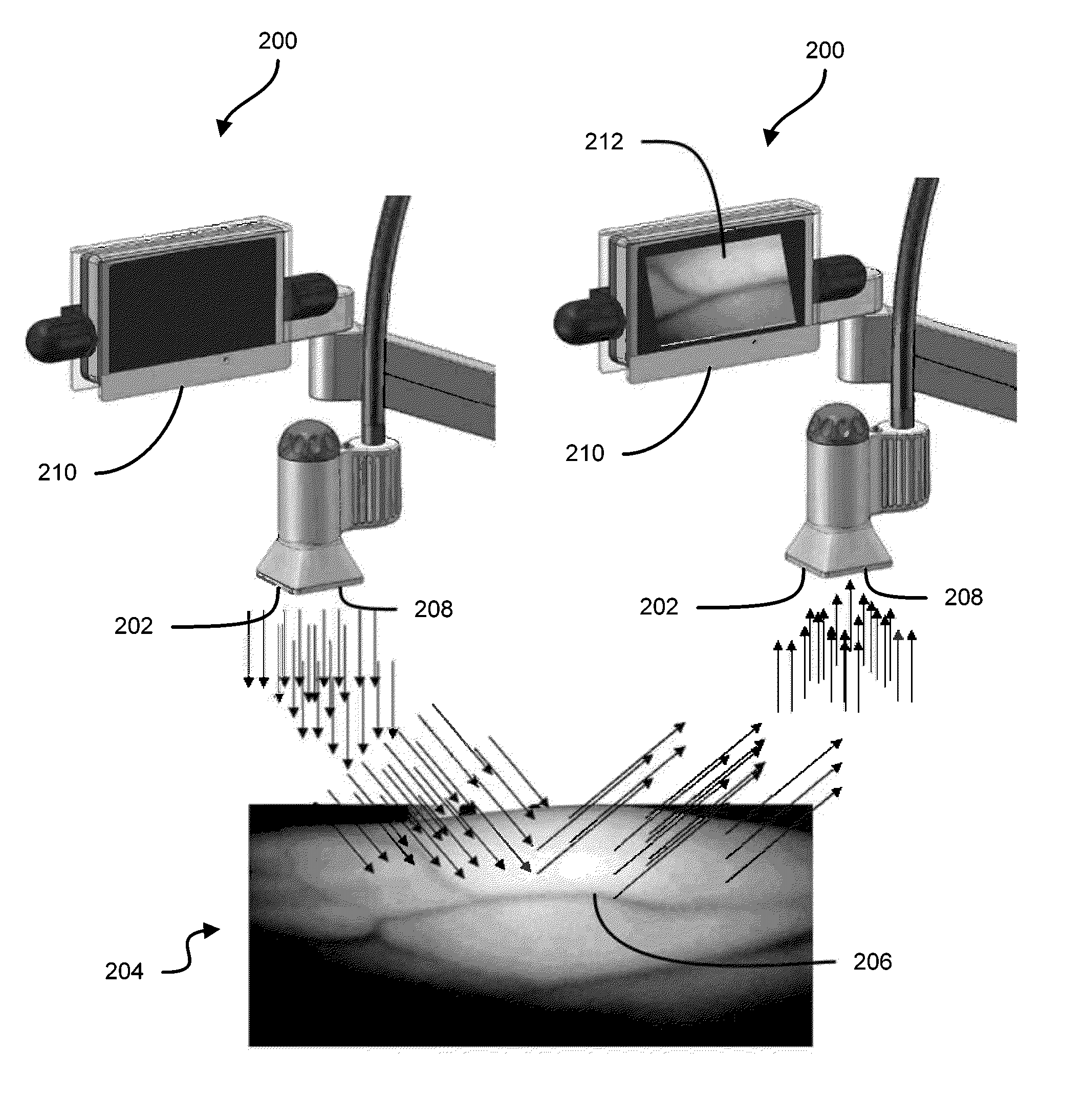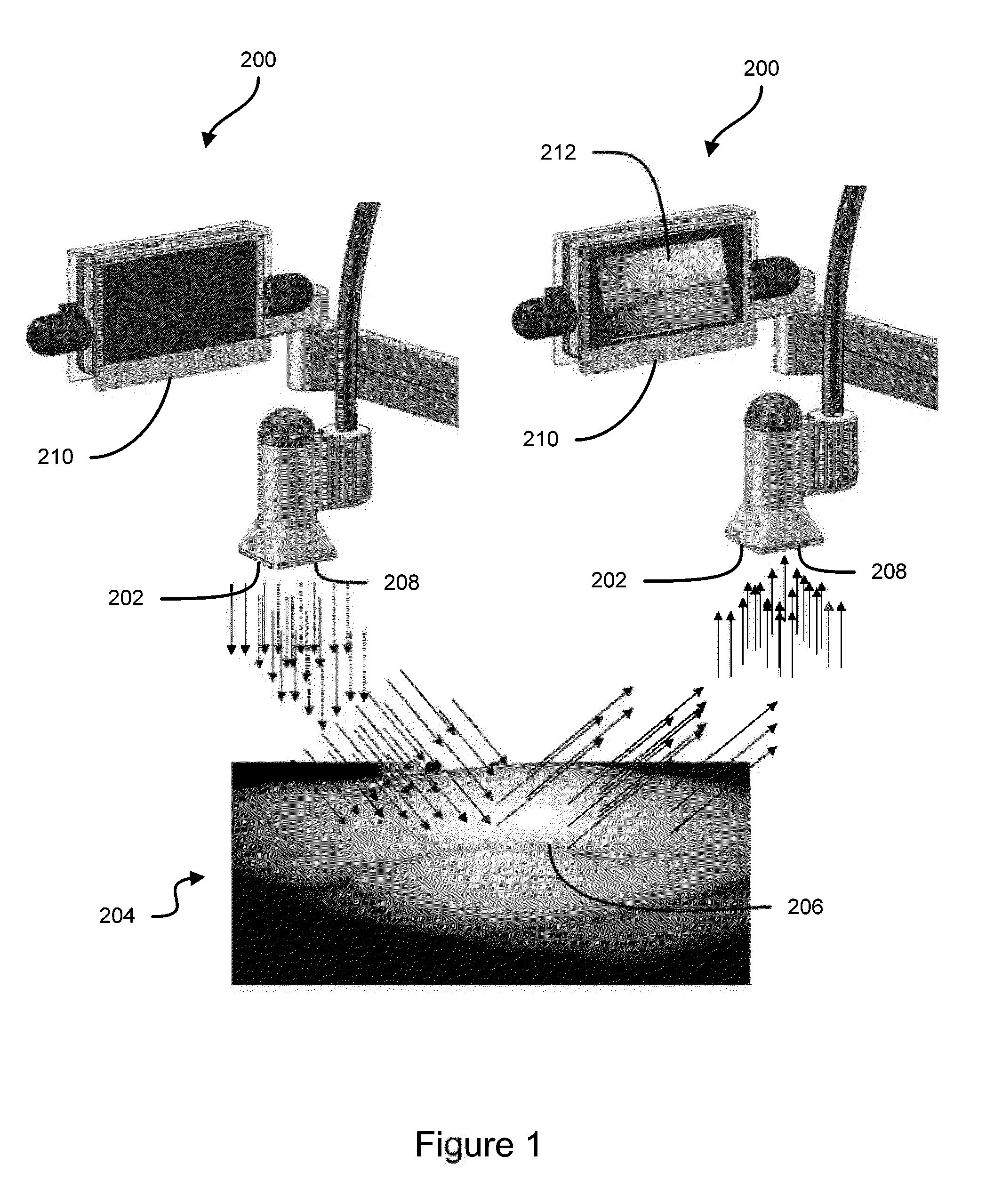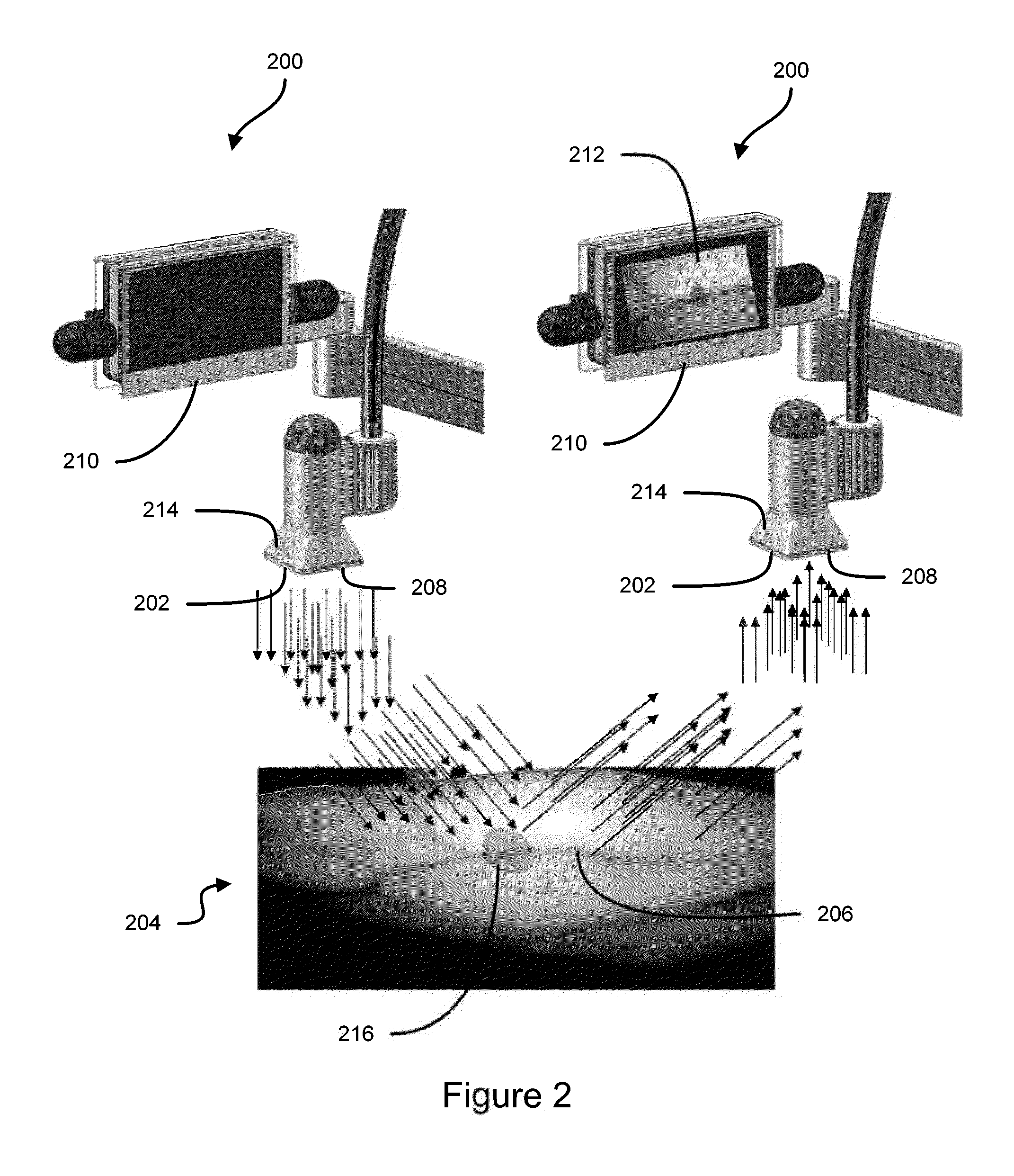Vein imaging systems and methods
a vasculature and system technology, applied in the field of system and method for imaging a patient vasculature, can solve the problems of difficult to determine the exact location of the blood vessel, difficult to place the distal tip of the needle in the blood vessel lumen, and difficulty in proper placement of hypodermic and procedural needles, so as to facilitate the detection of infiltration or extravasation within the target area
- Summary
- Abstract
- Description
- Claims
- Application Information
AI Technical Summary
Benefits of technology
Problems solved by technology
Method used
Image
Examples
Embodiment Construction
[0158]FIG. 1 shows an imaging system 200 that can be used to view the patent's vasculature and / or to identify infiltration or extravasation. The system can include a light source 202, such as an array of light emitting diodes (LEDs), that is configured to emit light onto a target area 204, such as an arm or other portion of a patient's body that includes one or more blood vessels 206 (e.g., veins). Although various embodiments are described herein with connection to viewing of veins, various features and methods described herein can be used for imaging other blood vessels and for imaging other vessels (e.g., lymphatic vessels) that transfer bodily fluids other than blood. The light source 202 can emit wavelengths of light that cause less of the light to be reflected or scattered by the veins and more of the light to be reflected by the tissue surrounding the veins. As used herein, the term “reflected” light includes light that is scattered. For example, near infrared (NIR) light can...
PUM
 Login to View More
Login to View More Abstract
Description
Claims
Application Information
 Login to View More
Login to View More - R&D
- Intellectual Property
- Life Sciences
- Materials
- Tech Scout
- Unparalleled Data Quality
- Higher Quality Content
- 60% Fewer Hallucinations
Browse by: Latest US Patents, China's latest patents, Technical Efficacy Thesaurus, Application Domain, Technology Topic, Popular Technical Reports.
© 2025 PatSnap. All rights reserved.Legal|Privacy policy|Modern Slavery Act Transparency Statement|Sitemap|About US| Contact US: help@patsnap.com



